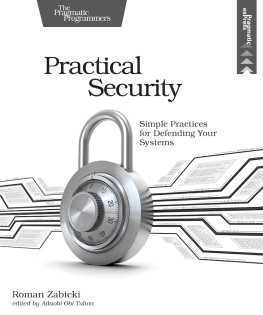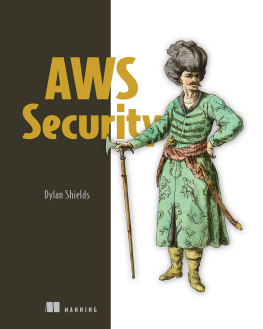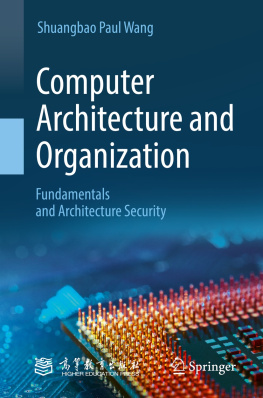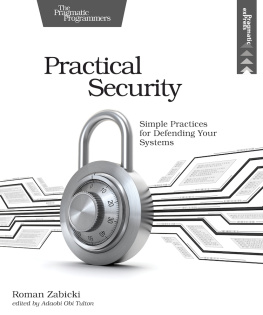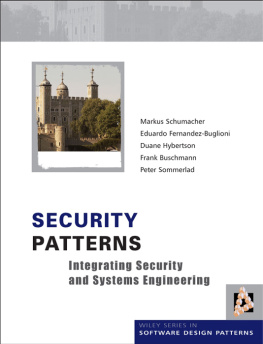Roman Zabicki - Practical Security: Simple Practices for Defending Your Systems
Here you can read online Roman Zabicki - Practical Security: Simple Practices for Defending Your Systems full text of the book (entire story) in english for free. Download pdf and epub, get meaning, cover and reviews about this ebook. year: 2019, publisher: Pragmatic Bookshelf, genre: Home and family. Description of the work, (preface) as well as reviews are available. Best literature library LitArk.com created for fans of good reading and offers a wide selection of genres:
Romance novel
Science fiction
Adventure
Detective
Science
History
Home and family
Prose
Art
Politics
Computer
Non-fiction
Religion
Business
Children
Humor
Choose a favorite category and find really read worthwhile books. Enjoy immersion in the world of imagination, feel the emotions of the characters or learn something new for yourself, make an fascinating discovery.
- Book:Practical Security: Simple Practices for Defending Your Systems
- Author:
- Publisher:Pragmatic Bookshelf
- Genre:
- Year:2019
- Rating:5 / 5
- Favourites:Add to favourites
- Your mark:
Practical Security: Simple Practices for Defending Your Systems: summary, description and annotation
We offer to read an annotation, description, summary or preface (depends on what the author of the book "Practical Security: Simple Practices for Defending Your Systems" wrote himself). If you haven't found the necessary information about the book — write in the comments, we will try to find it.
Most security professionals dont have the words security or hacker in their job title. Instead, as a developer or admin you often have to fit in security alongside your official responsibilities - building and maintaining computer systems. Implement the basics of good security now, and youll have a solid foundation if you bring in a dedicated security staff later. Identify the weaknesses in your system, and defend against the attacks most likely to compromise your organization, without needing to become a trained security professional.
Computer security is a complex issue. But you dont have to be an expert in all the esoteric details to prevent many common attacks. Attackers are opportunistic and wont use a complex attack when a simple one will do. You can get a lot of benefit without too much complexity, by putting systems and processes in place that ensure you arent making the obvious mistakes. Secure your systems better, with simple (though not always easy) practices.
Plan to patch often to improve your security posture. Identify the most common software vulnerabilities, so you can avoid them when writing software. Discover cryptography - how it works, how easy it is to get wrong, and how to get it right. Configure your Windows computers securely. Defend your organization against phishing attacks with training and technical defenses.
Make simple changes to harden your system against attackers.
What You Need:
You dont need any particular software to follow along with this book. Examples in the book describe security vulnerabilities and how to look for them. These examples will be more interesting if you have access to a code base youve worked on. Similarly, some examples describe network vulnerabilities and how to detect them. These will be more interesting with access to a network you support.
Roman Zabicki: author's other books
Who wrote Practical Security: Simple Practices for Defending Your Systems? Find out the surname, the name of the author of the book and a list of all author's works by series.

